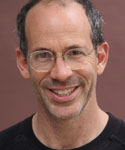Kurt Kornbluth, Ph.D.
- Assistant Adjunct Professor, Biological and Agricultural Engineering
- Renewable energy technologies
Biography
Kurt Kornbluth, PhD, Mechanical Engineer, is the founder and director of PIET and the UC Davis D-Lab. He is a graduate of the University of California, Davis. He participated in 2006 as a Graduate School of Management Business Development Fellow. He was also an Edison International Energy Efficiency Fellow with the Energy Efficiency Center from 2007-08. His research focus is on renewable energy technologies and lifecycle analysis and international development. His dissertation topic focused on hydrogen enrichment for enhanced combustion of landfill gas.
From 1993 to 2003, he worked with Whirlwind Wheelchair International (WWI), managing and implementing technology projects in Africa and Central America. He led the 8-year project, “Networking and Capacity building Wheelchair production in East Africa”, a cooperative effort between the Finnish Government, a local Zambian NGO (DISACARE), and WWI which established a Regional Resource and Training Center for wheelchair production in LUSAKA.
In 2005, he was the engineer onsite in Bangladesh for the “Emergence” village micro-utility project spearheaded by Iqbal Quadir (Founder of Grameen Phone) and Dean Kamen (Inventor of the Segway). He led the pilot study which electrified two rural communities in Bangladesh and his responsibilities included working with stakeholders to establish design criteria, prototype design and construction, and in-country implementation and evaluation.
In addition to cars, motorcycles, and general cool technology, he has a passion for energy and international development. In 2004, he worked with Amy Smith at MIT to develop the curriculum for “D-Lab” which exposed students to energy issues in developing countries and is currently the PI on the University of California, Davis EEC-sponsored Program for International Energy Technologies (PIET).
2006 University of California, Davis Graduate School of Management Business Development Fellow
2005 National Academy of Engineers Frontiers of Engineering “Young Outstanding Engineer”
2004-2003 UC Davis Institute of Transportation Studies National Science Foundation Integrative Graduate Education and Research Traineeship (IGERT) fellow
1996 Rehabilitation Engineering Society of North America (RESNA) Student Design Award
TTP 298-006: D-Lab I, “Energy and Development
This class will review the history of energy in the context of developing countries, looking at the rise of appropriate technologies and the role of government agencies, the private sector and non-governmental organizations. In addition, this course will review current issues (with an emphasis on environmental and public health, and economic constraints and impacts). Existing technologies in the market will be evaluated in lighting, water harvesting (including pumping), food production (specifically milling), food preparation (including cooking), and power generation. The class will foster critical thinking and review case studies of current and past approaches as well as assessment of actual impacts. Student groups will be formed and each will investigate a particular energy sector focusing on a target region or community. They will present their findings with regard to scale, context, stakeholder analysis, and possible alternative approaches to current practices. D-lab I is the first of a 2-part series focusing on energy in developing countries and is based on the MIT D-lab series.
TTP 298-007: D-Lab II, “Designing for the Market”
This hands-on class will focus on approaches to overcoming the barriers for the design and dissemination of existing energy technologies in the developing world. Curriculum will include practical labs, a business development clinic, case studies, independent research, and guest speakers. Students will form groups (E-teams) and focus on a particular energy issue or problem to tackle within a targeted region. Teams will examine and develop possible solutions to the issue(s) they have selected, including particular technology design as well as delivery strategy and/or development of a business model. Collaboration with faculty mentors, private sector experts, non-governmental organizations, and partner communities will serve to provide student teams with context and direction. In addition to a final presentation, E-teams will have a core project they will complete that will include one or more of the following: Product prototype, business plan, grant application, or investment pitch.
TTP 298-004, “A Hands-On approach to Energy Efficiency”
Through Lectures, field trips, guest speakers and hands-on labs students will understand the basic operation and control of common household and industrial energy consuming devices. This course complements the series of Energy Efficiency courses currently offered by the UC Davis Energy Efficiency Center. Multidisciplinary student focus group teams will perform energy assessment for an actual client. Projects include the UCD Domes retrofit, The UCD cool water storage, and the campus lighting initiative. Teams will present their findings and recommendations to a review panel for feedback.
SAS 120, “Global Poverty”
Lecture/discussion—3 hours. Prerequisite: upper division standing. Study of a contemporary societal issue/problem emphasizing critical thinking with information drawn from several disciplines. Multiple instructors illustrate the necessity of an interdisciplinary and cooperative approach in solving important issues. Topic will vary.
UC/Denmark LoCal Renewable Energy course
Students and researchers from the UC Santa Cruz, UC Davis, UC Merced, Technical University of Denmark and Aalborg University will meet in California for a 3-week renewable energy summer school program. Participants will learn about the economics, politics, science, and technology behind RE implementation from leading experts, while exploring communities and relevant energy sites where such technology is in place or currently being implemented. The program is intended for students of all disciplines, chosen on the basis of their academic qualifications, creativity, and commitment to RE. Each year, selected students from engineering, business, environmental studies, political science, geography, economics, and other fields are grouped together across disciplines and national ties to form project-based teams that throughout the program investigate.
Thank you for your interest in the UC Davis Institute of Transportation Studies. Subscribe today to keep up with the latest ITS news and happenings.

